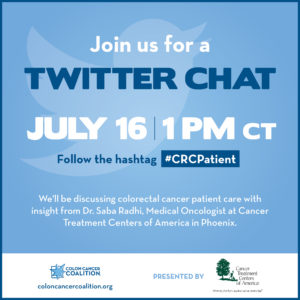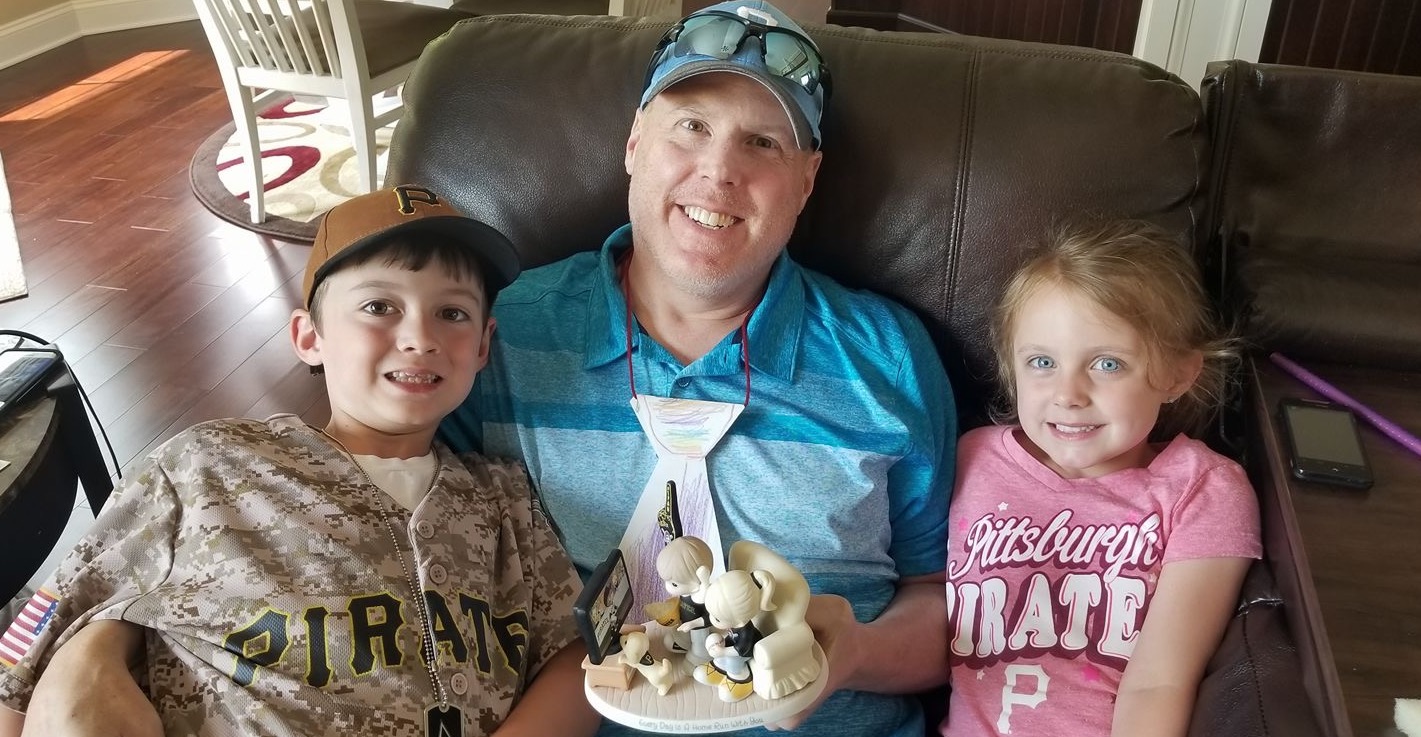What is a Twitter Chat?
A Twitter Chat is a running conversation on Twitter during a set time that revolves around a  predetermined topic. The Twitter Chat can be found, followed, and contributed to by using a designated hashtag. For this Twitter Chat series presented by Cancer Treatment Centers of America, it will be #CRCPatient.
predetermined topic. The Twitter Chat can be found, followed, and contributed to by using a designated hashtag. For this Twitter Chat series presented by Cancer Treatment Centers of America, it will be #CRCPatient.
Why participate in a Twitter Chat?
Participating in a Twitter Chat lets you be part of an important conversation, and allows you to pull up a seat at the table next to survivors, providers, organizations, and institutions. It is your chance to have your voice heard and to make your experience and work matter. It is also a great way to connect with others in the shared space who have a vested interested in the cause.
How to participate in a Twitter Chat?
For one hour, anyone interested is welcome to be part of the discussion topic of the Twitter Chat. Every Twitter Chat has a topic, and the questions asked revolve around this. It’s easy to join by following and using a designated hashtag which will be promoted in advance and used with very question asked.
There are a set number of predetermined questions that will be presented in scheduled increments. In this Chat, each question will be preceded with “Q1” through “Q8,” and participants can retweet with an answer appropriately labeled “A1” through “A8.” The Colon Cancer Coalition will be asking the questions from their Twitter account (@gyrig) and everyone should retweet any question they want to answer with their response so their answer makes sense.
Feel free to attach any resources, links, or photos in your response that will help support your answer. Responding to the questions live during the Twitter Chat is not a requirement for participation. We hope others will join in the hours and days after the Chat, as the responses reverberate throughout Twitter.
For this chat on Tuesday, July 16, 2019, we’ll be discussing #CRCPatient care with Dr. Saba Radhi, a medical oncologist with Cancer Treatment Centers of America in Phoenix.
Twitter Chat Questions:
Q1: Clinical trial recruitment is low, and barriers to patient participation contribute to lower enrollment. What barriers are common, and what barriers have you personally encountered as a patient, patient advocate, or provider? #CRCPatient
Q2: Often times patients view clinical trials as a “last resort” when all standard therapies have been exhausted. When should trials be considered and what perspective or experience can you provide to alter that perception? #CRCPatient
Q3: Once a clinical trial has ended for a patient and they have responded favorably, how do we best address concerns around obtaining and affording the drug outside of the trial? #CRCPatient
Q4: Genetic testing is important at diagnosis to determine tumor type and treatment plans. How important is more extensive genetic testing/sequencing for late state patients – especially if they are considering clinical trials? #CRCPatient
Q5: For a patient with a hereditary cancer mutation, what are the best resources for education and support both inside and outside the clinical setting, and how can their health care team connect with additional support? #CRCPatient
Q6: Patients can experience anxiety over a rise in their CEA, and there is mixed advice on when to be alarmed and when not to. What, aside from tumor growth, can influence the rise in CEA? #CRCPatient
Q7: Facing a recurrence can be disappointing for a patient, and feel like being diagnosed all over again. How can a provider and patient be both realistic about the potential for recurrence, and what advice can you give a patient to best avoid recurrence? #CRCPatient
Q8: As #colorectalcancer rises in young adults, what resources (both information, advice, and financial assistance) are out there to help them make decisions about fertility preservation? #CRCPatient

